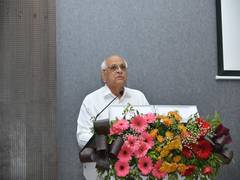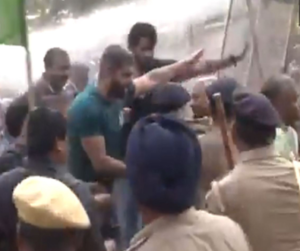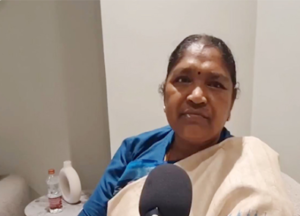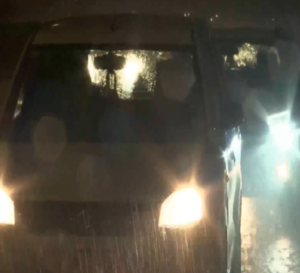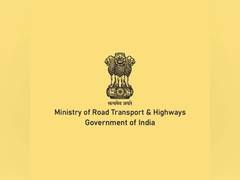Small traders of Arunachal seek resumption of operation in Indo-Myanmar border haat
Nampong (Arunachal Pradesh), Sep 3 (PTI) The Covid-19 pandemic came as a bolt from the blue for Khingwom Mossang and many of her peers as their source of income from trading activities at Pangsau Pass in Changlang district of Arunachal Pradesh, along the India-Myanmar border, came to a grinding halt in 2020.
Not only Mossang but over 100 small traders have been facing difficulties after the border trade with Myanmar stopped with the outbreak of the pandemic.
Two years on, they are still running from pillar to post to sustain their families and pleading with the government for early resumption of border trade, which began in 2000.
For 46-year-old Mossang, the sudden halt in trading activities at Pangsau Pass came as a “shock” as she and her husband are now facing a tough time running their family.
“We are passing through a hard phase of life. We are finding difficulties in meeting our day-to-day necessities, including electricity bills and others. Our income from other activities is not sufficient,” Mossang said.
She and her husband were engaged in border trade after 2000, and trading was their only source of income.
They earned an average of Rs 1-1.5 lakh per month.
“We could not even recover our money as we supplied commodities to the traders of Myanmar on credit,” Mossang, who used to sell vegetables, grocery items and utensils, said, while appealing to the government to initiate measures to re-open border trade.
Tenya Mossang (47), another trader from Nampong, has a similar story to tell.
“The economic conditions of many families, who were dependent on the border trade, became worse. They are now facing difficulties to survive,” Tenya, who owns a small shop in Nampong town, said.
“Earlier, I earned an average of Rs 40,000 monthly by selling cosmetic products and food items through border trade. But now I am hardly able to earn Rs 5,000 a month, which is not enough to fulfil the needs of my family,” she added.
Wichak Morang (36) from Theremkan Village near Nampong is now working as a daily wage earner after the border trade activities stopped.
“We are now in a very bad condition with no income source. Whatever I earn from daily work is not sufficient. I hope the government will soon reopen the border trade keeping in view the interest of small traders like us,” said Morang, who earlier managed an earning of Rs 20,000 per month by selling bakery products and vegetables.
Trade between India and Myanmar had existed before Independence on a small scale.
The governments of the two countries, on September 26, 1950, signed an agreement, according to which the indigenous hill tribes of both sides living within 40 km of the border were exempted from the requirement of a passport for trade purposes.
An MoU was signed in 2012 between India and Myanmar for the establishment of border haats along the international border at Pangsau Pass to facilitate trade.
Accordingly, both countries established border haats for trading purposes.
The border trade has been suspended after the outbreak of Covid-19 in 2020 and since then, it has not been resumed, Changlang Deputy Commissioner Sunny Kumar Singh said.
“The competent authority is trying to take up the issue for reopening of border trade with the Centre and several communications have been made in this regard. The decision of the Centre is still awaited,” the DC added.
While a land customs office was established at Nampong way back in 1950, it is now in a defunct state, Trade Development Officer Tangli Mossang said.
Sixty-two commodities, including, food items, vegetables, utensils, cosmetics, 100 cc motorbikes and cement, were allowed for trade by both the countries which were under tax exemption, he said.
Locals of Nampong, Jairampur and Manmao subdivisions in the district claimed that the “Assam Rifles was opposing the resumption of border trade through Pangsau Pass due to security reasons”.
An Assam Rifles official, however, denied the allegation.
“Assam Rifles has nothing to do with border trade but its concern is on the security aspects,” the paramilitary force official said on condition of anonymity.
Notably, suspected ULFA and NSCN militants had, in August last year, tried to ambush Assam Rifles troops from across the Myanmar border at Pangsau Pass, in which a junior officer sustained injury.
Pangsau Pass border trade was a “good opportunity” for the state, local legislator Laisam Simai said.
The state administration and the government of Myanmar, through a mutual understanding, had allowed border trade on 10, 20 and 30th of every month at Pangsau Pass and every Friday at Nampong, he said.
“All traders, mainly women, actively took part in border haats and sold items among the 62 permissible commodities. But when the Covid-19 hit the country, the border trade was suspended temporarily, for which, our women and small-time traders are suffering a lot and their economic conditions have worsened,” the BJP MLA from the Nampong assembly constituency said.
The suspension of border trade also affected tourism activities in the region as tourists are not allowed to go to Pangsau Pass.
“By not resuming border trade, we are going against the Act East Policy,” Simai said.
He also claimed that he had convened several meetings among the district administration and the town administrative officer of Pangsau Pass along with Assam Rifles officials where all sides agreed to resume border trade.
“Even Chief Minister Pema Khandu had issued an order for resumption of border trade but there was no response from Myanmar side. Maybe, it was their internal problem in governance,” Simai said.
The Arunachal Pradesh governor had recently convened a meeting with the chief minister and the director general of Assam Rifles, where the DG assured that they would take up the matter with the Union Ministry of Home Affairs for resumption of border trade, he said.
“When border trades are going on in various places, why not here at Pangsau Pass? Security reason is a prime issue we honour that. There might be a few stray incidents but these can also be resolved. In this pretext, we cannot compromise with the economy. We will have to chalk out ways and means and will need to do something for the people,” Simai added.

